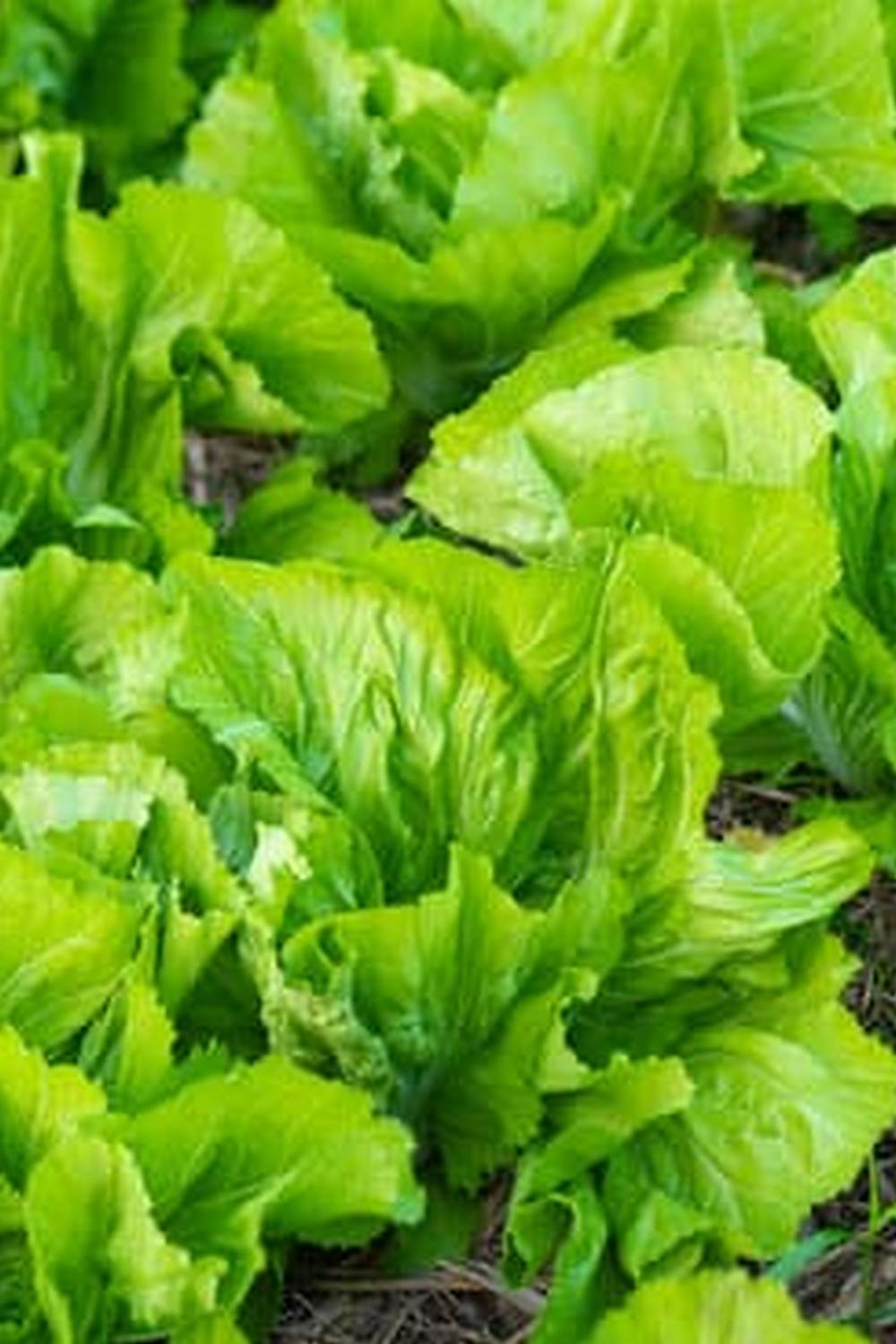Is roundup safe to use in vegetable gardens? This question has become a topic of concern and controversy among gardeners and environmentalists alike. With the increasing use of Roundup in vegetable gardens, there is a growing need to understand the potential risks and safe alternatives for weed control.
Weed control is crucial for maintaining a healthy and productive vegetable garden. However, the use of Roundup has sparked debates due to its potential health and environmental hazards. It is important to delve into the concerns surrounding Roundup in order to make an informed decision about its use in vegetable gardens.
This article will explore the controversy surrounding Roundup in vegetable gardens, discuss the potential risks associated with its use, and provide safe alternatives for weed control. Additionally, it will offer tips for safely using Roundup if necessary, as well as an overview of the laws and regulations regarding its use in vegetable gardens. By understanding these aspects, gardeners can make educated choices about weed control in their own vegetable gardens.
The Importance of Weed Control in Vegetable Gardens
Weed control is crucial in maintaining the health and productivity of vegetable gardens. Weeds compete with vegetables for nutrients, water, and sunlight, which can lead to stunted growth and reduced yields. Additionally, weeds can serve as hosts for pests and diseases that can spread to the vegetable plants. Therefore, it is important to implement effective weed control measures to ensure the success of a vegetable garden.
There are several methods for controlling weeds in vegetable gardens, including hand-weeding, mulching, and using herbicides. While hand-weeding and mulching are effective non-chemical methods of weed control, they can be time-consuming and labor-intensive, especially in larger gardens. This is why many gardeners consider using herbicides like Roundup for weed management.
Using Roundup or other glyphosate-based herbicides in vegetable gardens is a controversial topic. While some argue that it is an effective and convenient option for controlling weeds, others have raised concerns about its safety and potential risks to human health and the environment. As a result, many gardeners are left wondering whether Roundup is safe to use in their vegetable gardens.
- Hand-weeding: Regularly inspecting the garden and manually removing weeds by hand.
- Mulching: Applying organic materials such as straw or bark to smother weeds and prevent their growth.
- Herbicide alternatives: Using natural or organic herbicides made from ingredients like vinegar or essential oils.
Ultimately, the decision to use Roundup in a vegetable garden should be made carefully after weighing the potential risks against the benefits. It is essential for gardeners to understand the laws and regulations regarding Roundup use in their specific area before making an informed decision about its application in their vegetable gardens.
Understanding the concerns about Roundup’s safety in vegetable gardens is an important step towards implementing effective weed control measures while prioritizing the health of both the plants and those who consume them. By exploring safe alternatives and practicing careful usage when necessary, gardeners can maintain thriving vegetable gardens without compromising on safety.
The Controversy Surrounding the Use of Roundup in Vegetable Gardens
One of the main concerns is that glyphosate, the active ingredient in Roundup, may negatively impact human health. Studies have suggested a link between glyphosate exposure and certain health issues, including cancer and reproductive problems. Additionally, there is growing evidence that glyphosate can persist in soil and water, potentially harming non-target plants and animals.
Another aspect of the controversy surrounding Roundup’s use in vegetable gardens is its effect on beneficial insects and wildlife. The indiscriminate nature of herbicides like Roundup can harm pollinators such as bees and butterflies, which are essential for a thriving vegetable garden ecosystem. Moreover, it can also have unintended consequences for other wildlife that rely on these plants for food and habitat.
Furthermore, there is concern about the development of herbicide-resistant weeds due to prolonged use of Roundup. This phenomenon not only poses a challenge to effective weed control but also contributes to greater reliance on chemical solutions. As a result, finding safe alternatives to Roundup for controlling weeds in vegetable gardens has become increasingly important as gardeners seek more sustainable practices.
| Concerns | Impact |
|---|---|
| Human Health | Possible link to cancer and reproductive problems |
| Environment | Persistence in soil and water, harm to non-target plants and animals |
| Wildlife | Harmful effects on beneficial insects and wildlife; development of herbicide-resistant weeds |
The Potential Risks of Using Roundup in Vegetable Gardens
Health Risks
There is growing concern about the potential health risks associated with using Roundup in vegetable gardens. Glyphosate, the active ingredient in Roundup, has been classified as a probable carcinogen by the International Agency for Research on Cancer (IARC). Studies have shown that exposure to glyphosate may be linked to an increased risk of certain types of cancer, including non-Hodgkin lymphoma.
Soil Contamination
Another potential risk of using Roundup in vegetable gardens is soil contamination. When Roundup is applied to weeds, it can seep into the soil and affect its composition. This can lead to a decrease in the beneficial microorganisms and nutrients present in the soil, ultimately impacting the health of the vegetables grown in it. Additionally, glyphosate has been found to persist in soil for extended periods, potentially affecting future crops.
Impact on Beneficial Insects and Wildlife
The use of Roundup in vegetable gardens may also pose a threat to beneficial insects and wildlife. Glyphosate can harm bees, butterflies, and other pollinators essential for vegetable garden productivity. Furthermore, runoff from treated areas can contaminate nearby water sources, posing a threat to aquatic life. It is crucial to consider these potential ecological impacts when deciding whether or not to use Roundup in your vegetable garden.
Given these potential risks, it is important for vegetable gardeners to carefully consider their options before using Roundup or any other synthetic herbicide. It is vital to weigh the benefits of weed control against the possible negative impacts on human health and the environment.
Safe Alternatives to Roundup for Controlling Weeds in Vegetable Gardens
When considering the use of herbicides in vegetable gardens, it’s important to explore safe alternatives to Roundup. Many gardeners are looking for effective methods to control weeds without resorting to potentially harmful chemicals. Fortunately, there are several options that can help keep your vegetable garden free from unwanted plants while minimizing the risk of exposure to toxic substances.
Natural Mulch and Weed Barrier
One safe alternative to Roundup is the use of natural mulch and weed barriers. Mulch, such as straw or wood chips, can be spread around your vegetable plants to suppress weed growth. Additionally, weed barriers made from materials like cardboard or landscaping fabric can be placed on the soil around your plants to block out sunlight and prevent weed growth. These natural methods not only help control weeds but also improve soil health.
Manual Weeding
Another safe and effective method for controlling weeds in vegetable gardens is manual weeding. While it may require more time and effort, hand-pulling weeds is a chemical-free way to keep your garden free from unwanted plants. Be sure to pull weeds out by the root to prevent regrowth, and consider using handheld tools like trowels or hoes for easier removal of stubborn weeds.
Natural Herbicide Sprays
For those who prefer a spray-on solution, there are natural herbicide options available that can be used as an alternative to Roundup. These products typically contain ingredients like citric acid or vinegar, which can effectively kill weeds without posing the same risks as chemical-based herbicides. When using natural herbicide sprays in your vegetable garden, be sure to follow the instructions carefully and apply them responsibly to avoid harming desirable plants.
By exploring these safe alternatives to Roundup for controlling weeds in vegetable gardens, you can maintain a healthy and thriving garden while minimizing potential risks associated with chemical herbicides. Whether you choose natural mulch, manual weeding, or natural herbicide sprays, there are plenty of effective options available for keeping your vegetable garden free from invasive plants without compromising safety or environmental health.
Tips for Safely Using Roundup in Vegetable Gardens, if Necessary
If you have decided that using Roundup is necessary for controlling weeds in your vegetable garden, there are certain tips and guidelines to follow to ensure the safe and responsible use of this herbicide. First and foremost, always carefully read and follow the instructions on the product label.
This includes wearing the appropriate protective clothing such as gloves, long-sleeved shirts, long pants, and closed-toe shoes when applying Roundup. Additionally, it is important to avoid spraying on windy days to prevent unintentional drift onto your crops or neighboring plants.
Another important tip for safely using Roundup in vegetable gardens is to avoid applying the herbicide directly onto the plants themselves. Instead, focus on spraying the weeds at their base while taking care not to let the product come into contact with any edible parts of your vegetables. Furthermore, it is crucial to store Roundup safely out of reach of children and pets and to properly dispose of any leftover product or empty containers according to local regulations.
It is also worth considering alternative methods for weed control in your vegetable garden if possible. Manual weeding, mulching, and using organic herbicides are all safe alternatives to Roundup that can help keep your garden free from weeds without potentially harmful chemicals.
| Tips for Safely Using Roundup in Vegetable Gardens | Information |
|---|---|
| Read and follow product label instructions | Always wear protective clothing when applying Roundup |
| Avoid spraying on windy days | Avoid applying directly onto plants or edible parts of vegetables |
| Store safely away from children and pets; Properly dispose of leftover product | Consider alternative methods for weed control such as manual weeding or organic herbicides |
Understanding the Laws and Regulations Regarding Roundup Use in Vegetable Gardens
When it comes to using Roundup in your vegetable garden, it is important to be aware of the laws and regulations surrounding its use. This includes understanding federal, state, and local regulations, as well as any specific guidelines set by agricultural or environmental authorities. Here are some key points to keep in mind when it comes to the legal aspect of using Roundup in your vegetable garden:
- Federal regulations: The Environmental Protection Agency (EPA) regulates the use of herbicides like Roundup at the federal level. It sets maximum allowable limits for residues of glyphosate, the active ingredient in Roundup, on food crops. Familiarize yourself with these regulations to ensure that you are using Roundup within legal limits.
- State and local regulations: In addition to federal regulations, many states and localities may have their own rules and restrictions regarding the use of herbicides in vegetable gardens. Be sure to research and consult with your local agricultural extension office or environmental agency to understand any specific requirements or prohibitions that may apply to your area.
- Label instructions: The label on a Roundup product provides important information about its safe and legal use. Always read and follow the instructions provided on the label, as failure to do so can result in violations of regulations and potential harm to your vegetable garden.
By being informed about the laws and regulations governing Roundup use in vegetable gardens, you can ensure that you are using this herbicide in a legal and responsible manner. Always stay up-to-date with any changes or updates to these regulations to protect both your garden and the environment.
Conclusion
In conclusion, the debate over whether Roundup is safe to use in vegetable gardens is a complex and nuanced issue that requires careful consideration. While Roundup has been a popular choice for weed control in vegetable gardens due to its effectiveness, there are concerns about its potential risks to human health and the environment. It is important for gardeners to weigh these concerns against the need for effective weed control and make an informed decision based on their individual circumstances.
When considering whether to use Roundup in your vegetable garden, it is crucial to explore safe alternatives for controlling weeds. There are many organic and natural methods that can effectively manage weeds without the potential risks associated with synthetic herbicides like Roundup. By exploring these alternatives, gardeners can make a conscious effort to prioritize the health and safety of themselves, their families, and the environment.
Ultimately, understanding the laws and regulations regarding Roundup use in vegetable gardens is essential for making an informed decision. It is important to stay updated on any developments or changes in regulations related to herbicide use, as this can impact the legality and safety of using products like Roundup in vegetable gardens. By staying informed and considering all available options, gardeners can make responsible choices that prioritize both effective weed control and the health of their vegetable gardens.
Frequently Asked Questions
How Long After Spraying Roundup Is It Safe to Plant Vegetables?
After spraying Roundup, it is generally recommended to wait at least 7 days before planting vegetables. This waiting period allows the herbicide to break down and dissipate, reducing the risk of harming the newly planted vegetables.
Is It Safe to Eat Vegetables That Have Been Sprayed With Roundup?
Despite controversial debates about the safety of consuming vegetables sprayed with Roundup, the general consensus is that it is safe to eat these vegetables. When used according to label instructions, Roundup should not pose a significant health risk when consuming treated vegetables.
How Long Does Roundup Stay Active in the Soil?
The active ingredient in Roundup, glyphosate, can remain active in the soil for up to six months or longer under certain conditions. Factors such as temperature, moisture, and soil type can affect the breakdown of glyphosate in the soil. It’s essential to follow guidelines and recommendations for re-planting after using Roundup to avoid interference with new plants’ growth.

If you’re looking to get into vegetable gardening, or are just looking for some tips on how to make your current garden better, then you’ve come to the right place! My name is Ethel and I have been gardening for years. In this blog, I’m going to share with you some of my best tips on how to create a successful vegetable garden.





